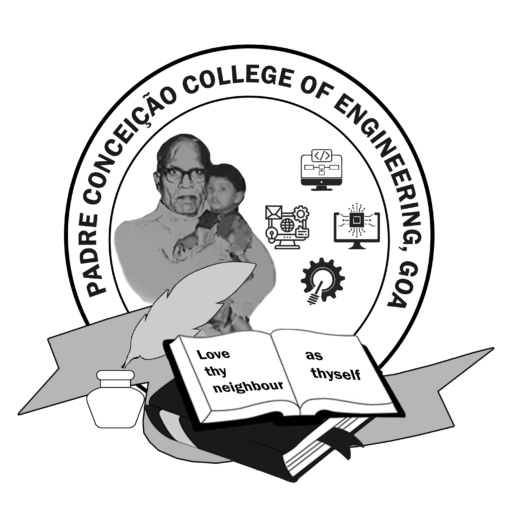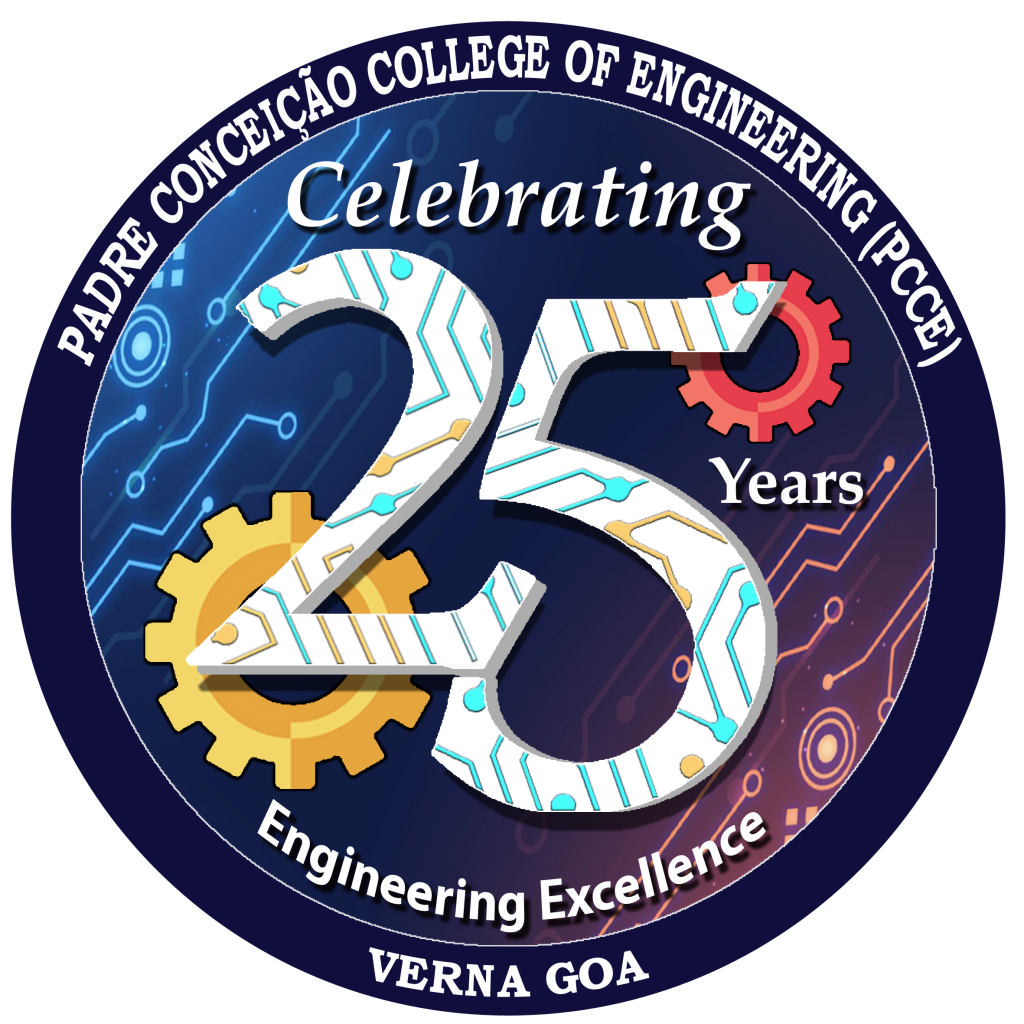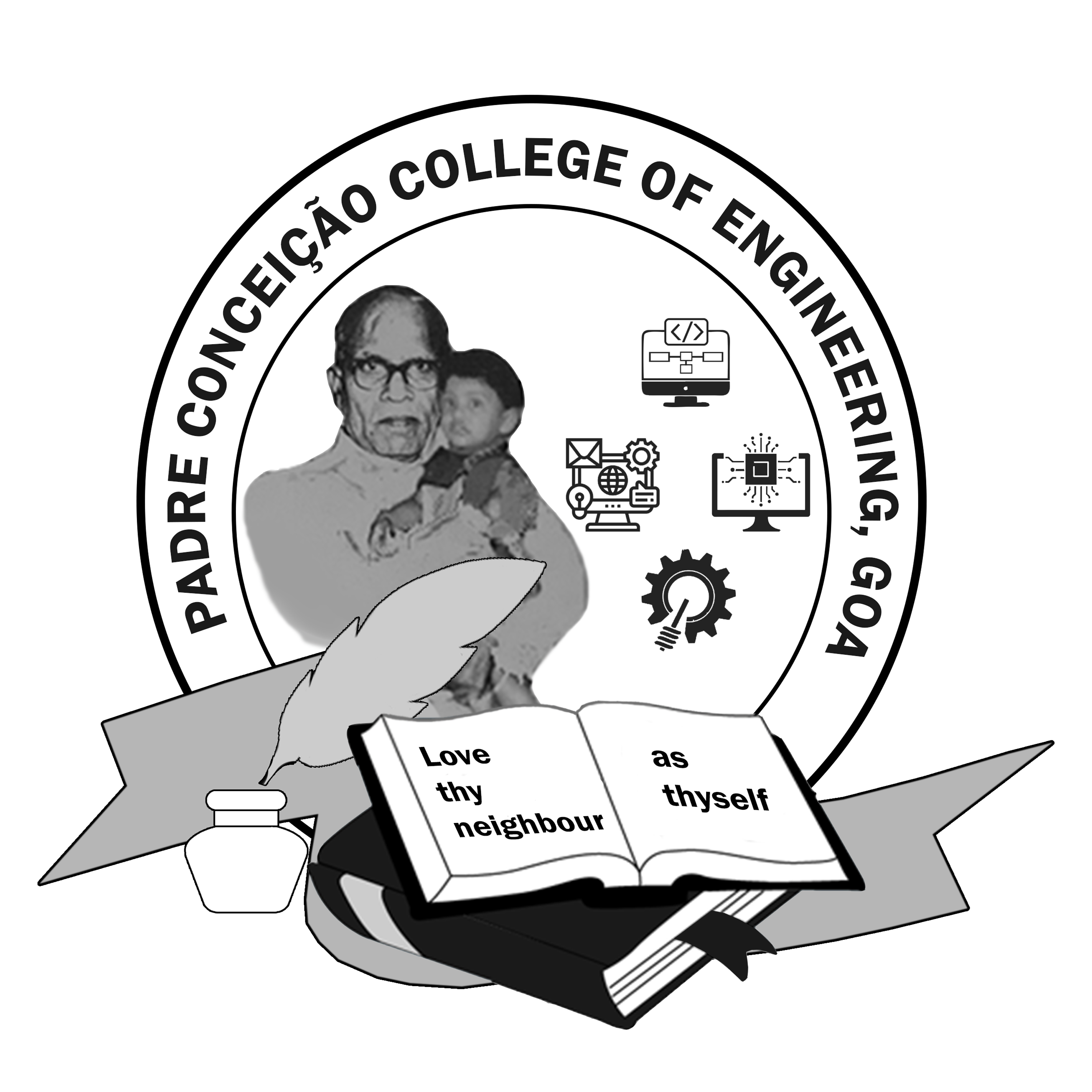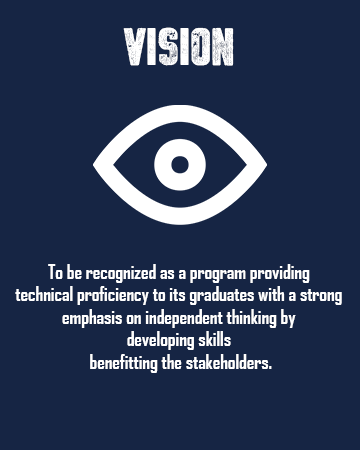
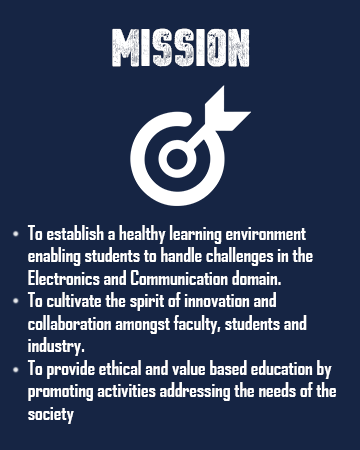


The Degree programme in Electronics and Telecommunication Engineering has been in existence since the inception of the College in 1997.
It was started with an aim of providing quality education in the field of Electronics and Telecommunications to aspiring undergraduate students. The course is approved by the All India Council for Technical Education (AICTE).
The course is of 4 years duration, each year consisting of 2 semesters. The students have to undertake a project during the final year. Our departmental library has its own collection of technical books, journals, text magazines and CDs for the quick reference of staff and students.
At present the course has an intake capacity of 60 students per year.
To be recognized as a program providing technical proficiency to its graduates with a strong emphasis on independent thinking by developing skills benefitting the stakeholders.
- M1: To establish a healthy learning environment enabling students to handle challenges in the Electronics and Communication domain.
- M2: To cultivate the spirit of innovation and collaboration amongst faculty, students and industry.
- M3: To provide ethical and value based education by promoting activities addressing the needs of the society
Department of Electronics and Telecommunication engineering is dedicated to graduating engineers who have
- A strong foundation and ability to apply mathematics, science, engineering fundamentals to analyse, design and implement solutions to problems in Engineering
- An in-depth knowledge in Electronics and Communication Engineering to create innovative products and solutions for the real life problems.
- Strong ethics and good professional attitude
- The ability to work in a team with effective communication skills to apply engineering knowledge to solve societal problems
- An interest for self-learning, to pursue higher education and engage in research and development activities
At the end of this programme the student will have:
- PSO1:
The skill-set to identify the engineering problems and develop solutions in the area of signal processing, communication, instrumentation, VLSI and embedded systems.
- PSO2:
The proficiency to implement solutions using hardware and software tools along with analytical and managerial skills in the electronics and communication domain.
At the end of this programme :
- PO1:Engineering knowledge: Apply the knowledge of mathematics, science, engineering fundamentals, and an engineering specialization to the solution of complex engineering problems.
- PO2:Problem analysis: Identify, formulate, review research literature, and analyze complex engineering problems reaching substantiated conclusions using first principles of mathematics, natural sciences, and engineering sciences.
- PO3:Design/development of solutions: Design solutions for complex engineering problems and design system components or processes that meet the specified needs with appropriate consideration for the public health and safety, and the cultural, societal, and environmental considerations.
- PO4:Conduct investigations of complex problems: Use research-based knowledge and research methods including design of experiments, analysis and interpretation of data, and synthesis of the information to provide valid conclusions.
- PO5:Modern tool usage: Create, select, and apply appropriate techniques, resources, and modern engineering and IT tools including prediction and modeling to complex engineering activities with an understanding of the limitations.
- PO6:The engineer and society: Apply reasoning informed by the contextual knowledge to assess societal, health, safety, legal and cultural issues and the consequent responsibilities relevant to the professional engineering practice.
- PO7:Environment and sustainability: Understand the impact of the professional engineering solutions in societal and environmental contexts, and demonstrate the knowledge of, and need for sustainable development.
- PO8:Ethics: Apply ethical principles and commit to professional ethics and responsibilities and norms of the engineering practice.
- PO9:Individual and team work: Function effectively as an individual, and as a member or leader in diverse teams, and in multidisciplinary settings.
- PO10:Communication: Communicate effectively on complex engineering activities with the engineering community and with society at large, such as, being able to comprehend and write effective reports and design documentation, make effective presentations, and give and receive clear instructions.
- PO11:Project management and finance: Demonstrate knowledge and understanding of the engineering and management principles and apply these to one’s own work, as a member and leader in a team, to manage projects and in multidisciplinary environments.
- PO12:Life-long learning: Recognize the need for, and have the preparation and ability to engage in independent and life-long learning in the broadest context of technological change.
